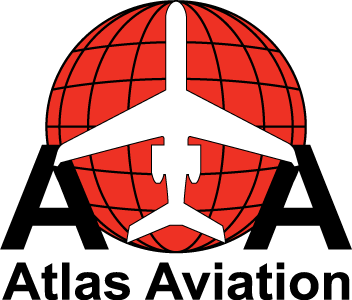Recreational Pilot Certification
The Recreational Pilot Certificate is an entry-level license that allows you to fly light, simple aircraft with fewer training hours than a Private Pilot Certificate. At Atlas Aviation in Tampa, we guide you through every step of this certification, making it a great option for those who want to fly locally for fun without the longer training commitment of a Private Pilot License.
Prerequisites
To begin training for the Recreational Pilot Certificate, you must:
-
Be at least 17 years old.
-
Hold at least a 3rd Class FAA Medical Certificate.
-
Be able to read, speak, write, and understand English.
Training Hours
FAA minimums for the Recreational Pilot Certificate are:
-
30 total flight hours
-
15 hours of dual instruction with a Certified Flight Instructor (CFI)
-
3 hours of solo flight time
-
2 hours of cross-country training
-
👉 Average training time: Most students require 35–40 hours to be fully prepared for the checkride.
Costs
Training costs are generally lower than Private Pilot due to reduced hour requirements:
-
Aircraft rental (Cessna 152 or 172): $XXX/hour wet (fuel included)
-
Instructor time: $XXX/hour
-
Ground school (online or classroom): $XXX
-
Books, materials, and supplies: approx. $250–$300
-
FAA written exam fee: $175
-
FAA checkride (practical exam) fee: $600–$800 (paid to examiner)
👉 Estimated total cost: $8,000 – $10,000, depending on training pace and aircraft choice.
Examinations
Like other pilot certifications, you’ll complete two exams:
-
FAA Knowledge Test
-
Covers basic aerodynamics, airspace, regulations, and safety.
-
60 multiple-choice questions, minimum score 70%.
-
-
Practical Test (Checkride) with a Designated Pilot Examiner (DPE)
-
Oral exam: ~1 hour of discussion on weather, airspace, and flight planning.
-
Flight test: 1–1.5 hours in the aircraft demonstrating maneuvers, navigation, and emergency procedures.
-
Limitations of the Recreational Pilot Certificate
-
May only fly aircraft with up to 4 seats (but only 1 passenger allowed).
-
Daytime flying only, under Visual Flight Rules (VFR).
-
Flight limited to within 50 nautical miles of the departure airport unless given additional training/endorsements.
-
No flying in controlled airspace without additional endorsements.
Benefits of a Recreational Pilot Certificate
-
Lower Training Hours & Costs – Quicker and more affordable than a Private Pilot License.
-
Great for Local Flying – Perfect if you want to enjoy flights around Tampa Bay without long-distance travel.
-
Step Toward Private Pilot – Hours can be credited toward future training if you decide to upgrade later.
-
Simple Entry Point – Less complex training while still earning an FAA-issued pilot certificate.
